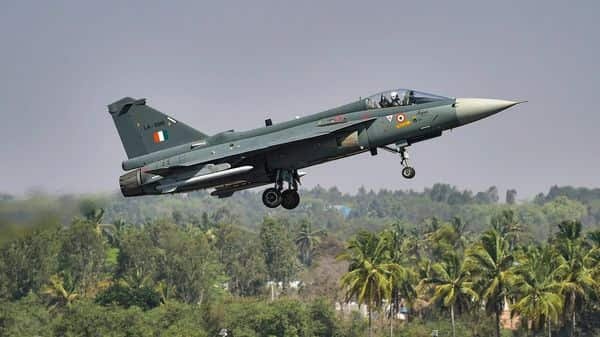Param Vir Chakra Squadron of IAF Gets Resurrected
 The No. 18 Squadron, also known as ‘Flying Bullets’, has been resurrected at the Salur Air Force Station in Tamil Nadu for the second squadron of indigenously made Tejas light combat aircraft which are being inducted into the Air Force on May 26
The No. 18 Squadron, also known as ‘Flying Bullets’, has been resurrected at the Salur Air Force Station in Tamil Nadu for the second squadron of indigenously made Tejas light combat aircraft which are being inducted into the Air Force on May 26
The 18 Squadron of IAF had won the Param Vir Chakra when Flying Officer Nirmaljit Singh Sekhon, had taken on four Pakistani Sabre jets without fear during the 1971 war, over Srinagar skies. This Squadron is set to take to the skies again after having remained “number-plated” for about four years.
The No. 18 Squadron, also known as ‘Flying Bullets’, has been resurrected at the Salur Air Force Station in Tamil Nadu for raising the second squadron of indigenously made Tejas light combat aircraft and is being inducted into the Air Force on May 26.
The squadron, first raised in April 1965, had been number-plated at Hasimara airbase in the east in 2016 after the MiG-27 aircraft that it was equipped with were decommissioned.
Coinciding with the golden jubilee of the commissioning of Flying Officer Sekhon in 2017, Air Headquarters had drawn up plans to revive the squadron that he had served in. “We met the then air chief, Air Chief Marshal BS Dhanoa, and he had assured us that 18 Squadron is being revived as part of the IAF’s endeavour to ensure that Sekhon’s contribution to the nation and the force is never forgotten,” Wg Cdr CS Grewal (retd), who is Sekhon’s batchmate from the 97th Pilots’ Course, said.
The squadron was initially formed with Gnat fighter aircraft. It first saw action during the 1971 Indo-Pak war and operated from Srinagar with the task of defending the Kashmir Valley. Sekhon, then just 28 and hailing from Ludhiana, was part of this Squadron.
On December 14, 1971, Sekhon, along with another officer, scrambled to counter an attack by Pakistan aircraft and shot three enemy Sabre jets in aerial combat. His own aircraft was hit and he went down. For his actions, he was decorated with the highest gallantry award.
After the war, the Gnats were replaced with HAL Ajeet in 1975. In May 1989, when the squadron was at Hindon, it received the MiG-27 and its role changed from air defence to ground attack. It then moved to Kalaikunda in the North-East, where it was awarded the President’s Standards in 2015 before flying into the sunset.
The Flying Bullets would be the second IAF squadron to fly the Tejas. In 2016, the IAF had raised its first Tejas unit, No. 45 Squadron, the ‘Flying Daggers’, which is also based at Salur. It was this squadron, then operating the MiG 21 Bison that had shot down a Pakistani Atlantique aircraft over the Rann of Kutch in 1999.
While the aircraft with 45 Squadron are of the Initial Operational Clearance (IOC) configuration, those being inducted in 18 Squadron are of the more advanced Final Operational Clearance (FOC) configuration.
The IAF has so far ordered 40 Tejas aircraft and, according to reports, intends to procure a further 83 which will be of MK1A variety. Tejas is a single-engine, delta wing, lightweight but a formidable mutirole fighter with a payload capacity of 4,300 kg and a combat range of 500 km.




